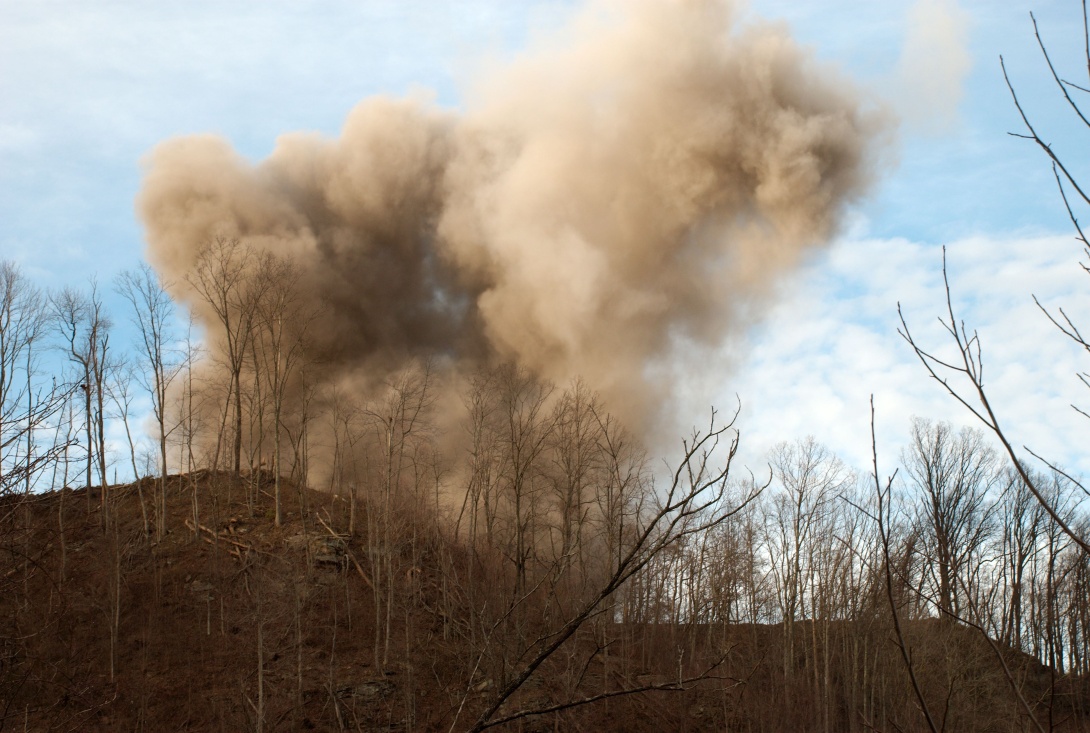A turning point on mountaintop removal?

There were two important developments this week on mountaintop removal mining that represent setbacks to the Appalachian coal industry and a boost to groups fighting the controversial practice.
On Tuesday, a federal appeals court unanimously ruled that the Environmental Protection Agency (EPA) has the legal authority under the Clean Water Act to revoke a permit for a mountaintop removal mining operation issued by the U.S. Army Corps of Engineers.
The D.C. Circuit Court of Appeals overturned a lower court decision that blocked the agency from stopping Mingo Logan Coal Co.'s Spruce Mine No. 1, the biggest mountaintop mining operation ever proposed for West Virginia. Mingo Logan is owned by Arch Coal of St. Louis, the nation's second-largest coal producer.
Scroll below to listen or read along with this article.
Issued in 2007 but delayed by legal action, the Corps' permit would have allowed the company to blow up over 2,000 acres of mountaintop land in Logan County, W.Va. and bury over six miles of mountain streams under mining waste dumps known as "valley fills." The EPA revoked the permit in 2011, citing the damage the mine would cause to the state's rivers, wildlife and communities. The company then sued, and last year a U.S. District Court judge reversed the EPA's decision.
The federal agency then turned to the appeals court, which ruled that the "unambiguous language" of the Clean Water Act "manifests Congress's intent to confer on EPA a broad veto power extending beyond permit issuance."
Not surprisingly, the National Mining Association blasted the ruling, saying it "creates regulatory uncertainty" and represents a "devastating blow to investment and jobs." Mountaintop removal has become the primary method of coal mining in Appalachia; however, analyses show that it actually requires fewer workers than deep mining to meet the same production goals.
Meanwhile, environmental groups cheered the decision. The Sierra Club, part of a coalition of environmental advocacy groups that submitted a brief in support of EPA's veto power, called the ruling "a major blow" to the coal industry.
"Today marks a major milestone in the fight to end the destructive practice of mountaintop removal mining," said Mary Anne Hitt, director of Sierra Club's Beyond Coal Campaign.
Scientists call for moratorium
Also on Tuesday, the National Commission on the Health Impacts of Mountaintop Removal Mining, a group of independent physicians and scientists looking into the practice, released its recommendations for ensuring the health and safety of people living near such mining operations.
Its first recommendation is for the federal government to impose an immediate moratorium on mountaintop removal mining until more research is done to provide a clearer understanding of the adverse health impacts of the practice.
"The evidence shows that mountaintop removal threatens public health and the environment," said Dr. Steven Wing, an associate professor of epidemiology at the University of North Carolina and a member of the commission. "It's time to act to protect rural communities."
The Center for Health, Environment and Justice (CHEJ), a grassroots advocacy group that works with communities affected by toxic pollution, commissioned the scientists to review a report it prepared analyzing the existing body of peer-reviewed, scientific studies on mountaintop removal's impact on human health.
The report found that communities near mountaintop removal mining operations suffer from higher rates of cancer, death from chronic cardiovascular disease, mental health disorders, and psychological distress. Researchers have also found that birth defect rates are 26 percent higher in areas of Central Appalachia where mountaintop removal mining is underway compared to non-mining areas.
Besides imposing a moratorium on the practice, the commission's other recommendations include conducting more research on the health impacts of mountaintop removal and human exposure to pollutants produced by the process. In addition, it recommends that corporations involved in mountaintop removal develop a mechanism to fund independent research.
Activists opposed to mountaintop removal mining say the study should help build support for the Appalachian Communities Health Emergency Act (H.R. 526) introduced in Congress in February. The measure would place a moratorium on permitting for mountaintop removal mines until health studies are completed by the Department of Health and Human Services. The bill's primary sponsor is U.S. Rep. John Yarmuth (D-Ky.), and it has 27 co-sponsors to date.
Ginger Danz, a resident of the mining community of Fayetteville, W.Va. and the mother of a seven-year-old, took part in the CHEJ press conference announcing the report's release. She said she "wholeheartedly" supports its recommendations.
"There are so many unanswered questions," Danz said. "I have friends who are pregnant. We wonder, do we need to move away from West Virginia?"
Tags
Sue Sturgis
Sue is the former editorial director of Facing South and the Institute for Southern Studies.
